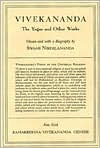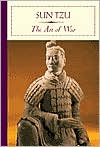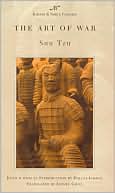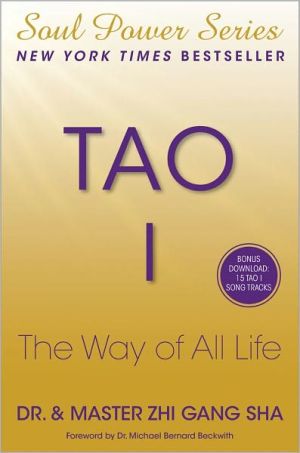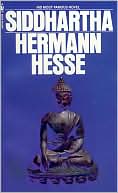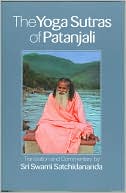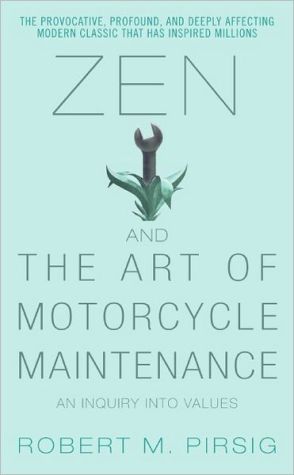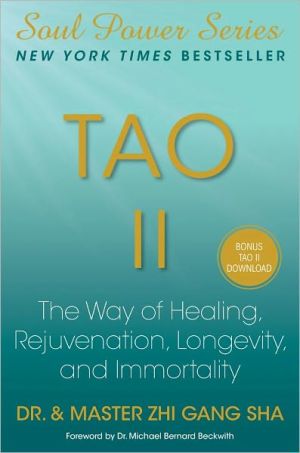Vivekananda: The Yogas and Other Works
Swami Vivekananda, India's first spiritual and cultural ambassador to the West, came to represent the religions of India at the World Parliament of Religions, held at Chicago in connection with the World's Fair (Columbian Exposition) of 1893. His message of the unity of humankind and harmony of religions was embraced by the public and press of the time as representing the essence of the Parliament. The Swami wished to create a bridge between the East and the West by bringing to America the...
Search in google:
Vivekananda: The Yogas and Other Works reveals the many facets of a spiritual giant of our times. It will serve as a guide for all spiritual seekers in their search for the Highest Good. This handsome edition includes the unabridged texts of Swami Vivekananda's' Jnana-Yoga, Raja-Yoga, Karma-Yoga, Bhakti-Yoga, and Inspired Talks, together with additional lectures, poems, and letters. A biography of Vivekananda (179 pages) written by Swami Nikhilananda forms the introductory chapter. A glossary and an index are included along with 43 photographs. F.S.C. Northrop Yale University To convey Hindu meanings in English words is exceedingly difficult. The difficulty arises from the fact that the reader inevitably reads modern western, rather than ancient Hindu, meanings into the English words. The problem of any expositor or translator, therefore, is that of so wording the English translation of the Hindu doctrines that the Western philosophical or psychological meanings of the English words will not be introduced to the reader. Especially in his exposition of Jnana-Yoga, Vivekananda showed himself to be the expert in this. It is important, therefore, that Swami Nikhilananda has brought out a revised edition of Vivekananda's works beginning with his Chicago addresses of 1893. It is important also for an understanding of Vivekananda's insistence upon developing Hinduism in ways that will permit his incorporation of Western science that Swami Nikhilananda has provided us with a biography of Vivekananda which shows his intellectual development.
EXCERPT: ADDRESS AT THE PARLIAMENT OF RELIGIONS - RESPONSE TO WELCOME (Chicago, September 11, 1893) \ Sisters and Brothers of America, It fills my heart with joy unspeakable to rise in response to the warm and cordial welcome which you have given us. I thank you in the name of the most ancient order of monks in the world; I thank you in the name of the mother of religions, and I thank you in the name of millions and millions of Hindu people of all classes and sects.\ My thanks, also, to some of the speakers on this platform who, referring to the delegates from the Orient, have told you that these men from far-off nations may well claim the honor of bearing to different lands the idea of toleration. I am proud to belong to a religion which has taught the world both tolerance and universal acceptance. We believe not only in universal toleration, but we accept all religions as true. I am proud to belong to a nation which has sheltered the persecuted and the refugees of all religions and all nations of the earth. I am proud to tell you that we have gathered in our bosom the purest remnant of the Israelites, who came to Southern India and took refuge with us in the very year in which their holy temple was shattered to pieces by Roman tyranny. I am proud to belong to the religion which has sheltered and is still fostering the remnant of the grand Zoroastrian nation. I will quote to you, brethren, a few lines from a hymn which I remember to have repeated from my earliest boyhood, which is every day repeated by millions of human beings: "As the different streams having their sources in different paths which men take through different tendencies, various though they appear, crooked or straight, all lead to Thee."\ The present convention, which is one of the most august assemblies ever held, is in itself a vindication, a declaration to the world of the wonderful doctrine preached in the Gita: "Whosoever comes to Me, through whatsoever form, I reach him; all men are struggling through paths which in the end lead to me." Sectarianism, bigotry, and its horrible descendant, fanaticism, have long possessed this beautiful earth. They have filled the earth with violence, drenched it often and often with human blood, destroyed civilization and sent whole nations to despair. Had it not been for these horrible demons, human society would be far more advanced than it is now. But their time is come; and I fervently hope that the bell that tolled this morning in honor of this convention may be the death-knell of all fanaticism, of all persecutions with the sword or with the pen, and of all uncharitable feelings between persons wending their way to the same goal.\ EXCERPT: ADDRESS AT THE PARLIAMENT OF RELIGIONS - ADDRESS AT THE FINAL SESSION (Chicago, September 27, 1893)\ The World's Parliament of Religions has become an accomplished fact, and the merciful Father has helped those who labored to bring it into existence, and crowned with success their most unselfish labor.\ My thanks to those noble souls whose large hearts and love of truth first dreamed this wonderful dream and then realized it. My thanks to the shower of liberal sentiments that has overflowed this platform. My thanks to this enlightened audience for their uniform kindness to me and for their appreciation of every thought that tends to smooth the friction of religions. A few jarring notes were heard from time to time in this harmony. My special thanks to them, for they have, by their striking contrast, made general harmony the sweeter.\ Much has been said of the common ground of religious unity. I am not going just now to venture my own theory. But if any one here hopes that this unity will come by the triumph of any one of the religions and the destruction of the others, to him I say, "Brother, yours is an impossible hope." Do I wish that the Christian would become Hindu? God forbid. Do I wish that the Hindu or Buddhist would become Christian? God forbid.\ The seed is put in the ground, and earth and air and water are placed around it. Does the seed become the earth, or the air, or the water? No. It becomes a plant. It develops after the law of its own growth, assimilates the air, the earth, and the water, converts them into plant substance, and grows into a plant.\ Similar is the case with religion. The Christian is not to become a Hindu or a Buddhist, nor a Hindu or a Buddhist to become a Christian. But each must assimilate the spirit of the others and yet preserve his individuality and grow according to his own law of growth.\ If the Parliament of Religions has shown anything to the world, it is this: It has proved to the world that holiness, purity and charity are not the exclusive possessions of any church in the world, and that every system has produced men and women of the most exalted character. In the face of this evidence, if anybody dreams of the exclusive survival of his own religion and the destruction of the others, I pity him from the bottom of my heart, and point out to him that upon the banner of every religion will soon be written in spite of resistance: "Help and not fight," "Assimilation and not Destruction," "Harmony and Peace and not Dissension."
PREFACE ILLUSTRATIONS NOTE ON THE PRONUNCIATION OF SANSKRIT AND VERNACULAR WORDS VIVEKANANDA, by Swami Nikhilananda CHICAGO ADDRESSES Response to Welcome Why We Disagree Hinduism Religion Not the Crying Need of India Buddhism: the Fulfillment of Hinduism Address at the Final Session JNANA-YOGA The Necessity of Religion The Real Nature of Man Maya Maya and the Evolution of the Concept of God Maya and Freedom The Absolute and Manifestation God in Everything Realization Unity in Diversity The Freedom of the Soul The Cosmos (The Macrocosm) The Cosmos (The Microcosm) Immortality The Atman The Atman: Its Bondage and Freedom Practical Vedanta (Part I) Practical Vedanta (Part II) Practical Vedanta (Part III) Practical Vedanta (Part IV) The Way to the Realization of the Universal Religion The Ideal of a Universal Religion BHAKTI-YOGA Definition of Bhakti The Philosophy of Isvara Spiritual Realization: the Aim of Bhakti-Yoga The Need of a Guru Qualifications of the Aspirant and the Teacher Incarnations The Mantra: Om Worship of the Substitutes and Images The Chosen Ideal How to Cultivate Bhakti The Preparatory Renunciation The Bhakta's Renunciation Results from Love The Naturalness of Bhakti-Yoga and Its Central Secret Forms of Love-manifestation Universal Love The Oneness of the Higher Knowledge and the Higher Love The Triangle of Love The God of Love Is His Own Proof Human Representations of Divine Love Conclusion KARMA-YOGA Karma and Its Effect on Character Each is Great in His Own Place The Secret of Work What is Duty? We Help Ourselves, Not the World Non-attachment Is Complete Self-Abnegation Freedom INSPIRED TALKS Inspired Talks RAJA-YOGA Author's Preface Introduction The First Steps Prana The Psychic Prana The Control of the Psychic Prâna Pratyahara and Dharana Dhyana and Samadhi Raja-Yoga in Brief Introduction to Patanjali's Yoga Aphorisms Concentration: Its Spiritual Uses Concentration: Its Practice The Powers Independence Appendix: References to Yoga MISCELLANEOUS LECTURES My Master Christ, the Messenger The Vedanta Philosophy What is Religion? Reason and Religion Steps to Realization Vedanta and Privilege The Free Soul Religion: Its Methods and Purpose Reincarnation Buddha's Message to the World Discipleship Work and Its Secret The Powers of the Mind The Great Teachers of the World Women of India The Ramayana The Mahabharata POEMS The Song of the Free My Play Is Done Song of the Sannyasin To an Early Violet Peace A Benediction The Cup To a Friend LETTERS Letters APPENDIX A APPENDIX B GLOSSARY INDEX
\ F.S.C. Northrop Yale UniversityTo convey Hindu meanings in English words is exceedingly difficult. The difficulty arises from the fact that the reader inevitably reads modern western, rather than ancient Hindu, meanings into the English words. The problem of any expositor or translator, therefore, is that of so wording the English translation of the Hindu doctrines that the Western philosophical or psychological meanings of the English words will not be introduced to the reader. Especially in his exposition of Jnana-Yoga, Vivekananda showed himself to be the expert in this. It is important, therefore, that Swami Nikhilananda has brought out a revised edition of Vivekananda's works beginning with his Chicago addresses of 1893. It is important also for an understanding of Vivekananda's insistence upon developing Hinduism in ways that will permit his incorporation of Western science that Swami Nikhilananda has provided us with a biography of Vivekananda which shows his intellectual development.\ \
